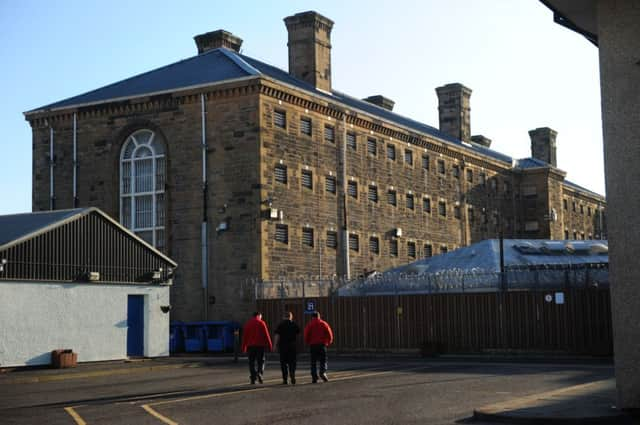EU: Scots prisoners’ vote ban ‘violates rights’


The European Court of Human Rights (ECHR) said more than 1,000 UK prisoners, including dozens of Scots, were unlawfully stopped from taking part in various elections between 2009 and 2011.
However, the court rejected the applicants’ claims for compensation and legal costs.
Advertisement
Hide AdAdvertisement
Hide AdGrouping together all of the long-standing prisoner voting cases against the UK, the court ruled that there had been a violation of Article 3 of the European Convention on Human Rights – the right to a free election.
Prisoners named in the ruling included Colin Slaven, who was jailed for three years in 2009 for being part of the biggest paedophile ring ever uncovered in Scotland, and convicted killer Bryan Boyle, jailed in 2007 for a minimum of 15 years for his part in the murder of a man who was beaten and set on fire.
Last year the ECHR made a similar ruling to that made today, endorsing previous cases where it was found that the blanket ban was a breach of human rights.
Last September, the Council of Europe’s committee noted “with profound concern and disappointment that the United Kingdom authorities did not introduce a bill to parliament at the start of its 2014-15 session as recommended by the competent parliamentary committee”.
It urged the UK authorities to introduce such a bill as soon as possible, and will come back to the issue later this year.
Sean Humber, a lawyer representing 554 prisoners fighting for the right to vote, welcomed the ECHR’s ruling, but said that compensation should have been awarded.
The judgment stated that while the ECHR recognised that some minor costs – such as spending on envelopes and stamps – must have been incurred, it did not consider it “necessary” to award legal costs.
Commenting that the ruling had confirmed the “unlawfulness” of the blanket ban on prisoner voting, Mr Humber, from the firm Leigh Day, said successive UK governments had “cynically sought to drag the matter out through a succession of consultations during the last decade”.
Advertisement
Hide AdAdvertisement
Hide AdHe said: “Unfortunately, we seem to be in the sad position where the government is taking an almost perverse pleasure in ignoring successive court judgments and is content to continue violating the human rights of thousands of its citizens.
FOLLOW US
SCOTSMAN TABLET AND MOBILE APPS
“It should be worrying to all of us that the government appears to have so little regard for its international human rights obligations or indeed the rule of law.”
Former inmate John Hirst has been campaigning for prisoner voting rights since 2001, when his legal challenge at the High Court failed.
Hirst – who served 25 years in jail after admitting the manslaughter of his landlady in 1979 – pursued the case to the ECHR, which first ruled in 2005 that the prisoner voting ban breached Article 3.
He said: “It is a real shame that compensation has not been awarded. While I can get some satisfaction from the ruling, the government keeps ignoring what the ECHR is saying.
“It has been ten years since my case and still nothing has changed. The only way I can see to force the issue is to impose some kind of financial penalty.”
A spokesman for the Ministry of Justice said: “The government has always been clear that it believes prisoner voting is an issue that should ultimately be decided in the UK. However, we welcome the court’s decision to refuse convicted prisoners costs or damages.”
Last year, the Supreme Court dismissed a bid by two convicted murderers to overturn a ban on inmates voting in the Scottish independence referendum.
Advertisement
Hide AdAdvertisement
Hide AdLeslie Moohan and Andrew Gillon, who are serving life sentences for murder, argued that the ban on taking part in the poll infringed their human rights under European and common law.
If they had won, the Scottish Government would have been forced to introduce emergency amendments to its independence referendum act allowing inmates to apply for a postal ballot or nominate a proxy voter.